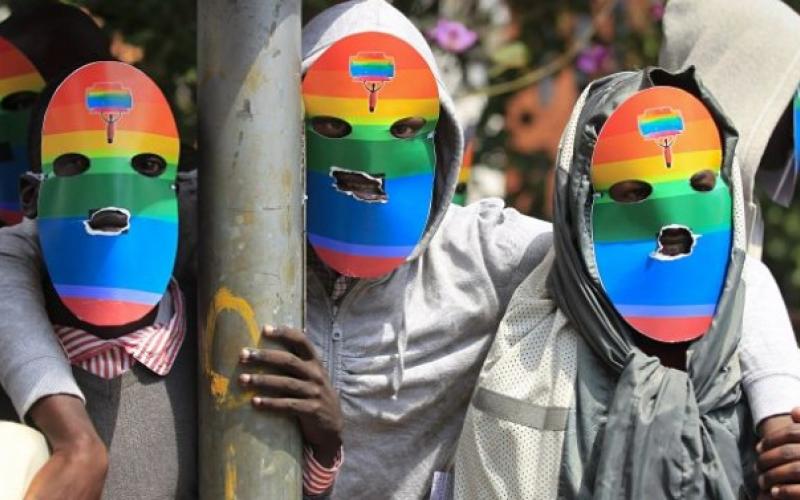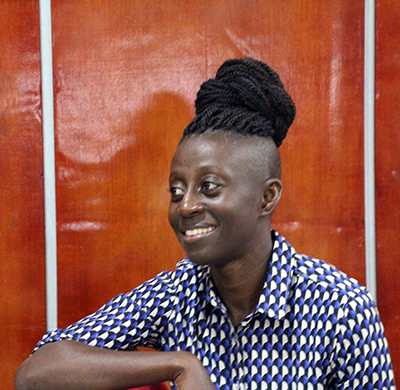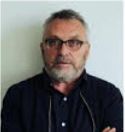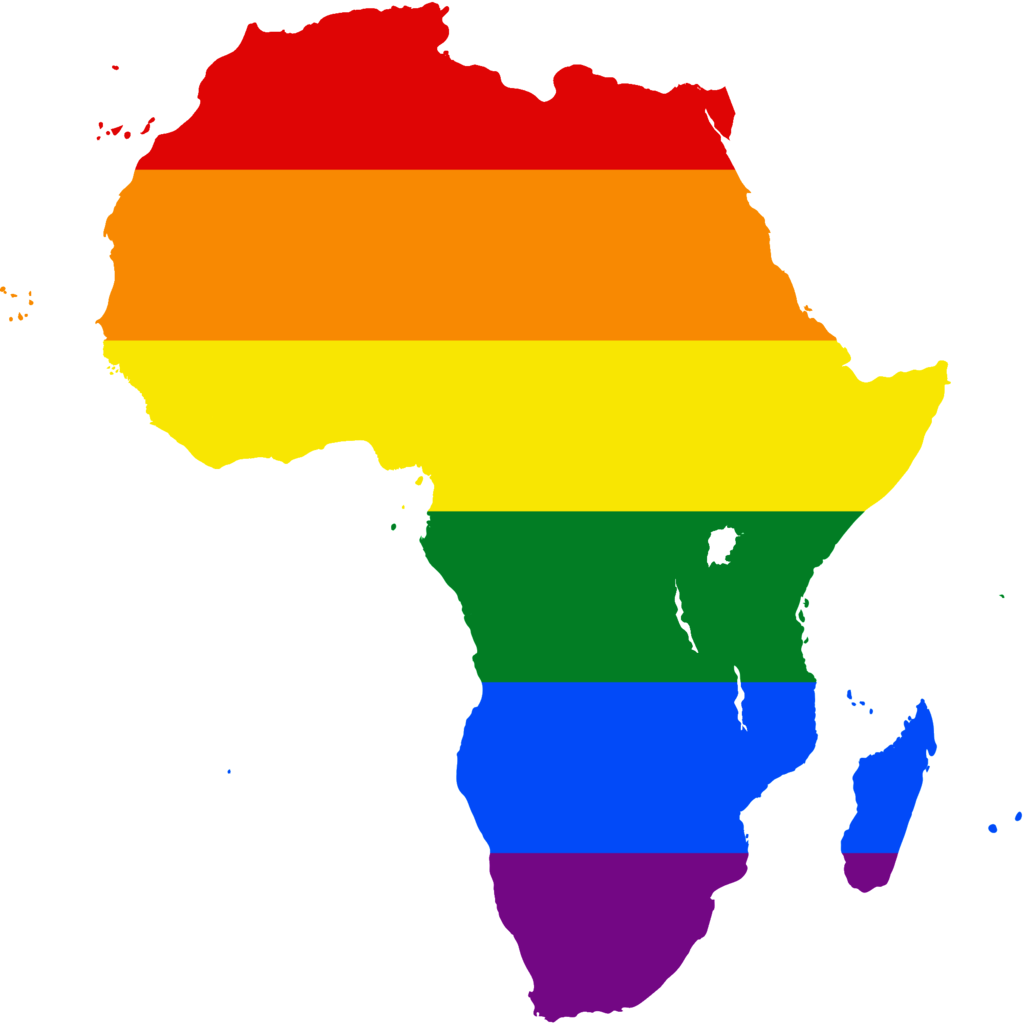Admitting the flaws of LGBTI activism; seeking solutions
Colin Stewart is a 45-year journalism veteran living in Southern…

Heartache, frustration, ennui, and burnout affecting LGBTIA+ activists.
Minimal impact on the everyday lives of African queer/LGBTIA+ individuals and communities.
Competition and antagonism among LGBTIA+ activists. In some cases, mismanagement, favoritism, and outright corruption.
Those are some of the problems that three veteran LGBTI activists describe in their recent analysis of the weaknesses of how LGBTI advocacy is structured and supported in Africa.
“Where do we go from here?” is the title of the analysis by Liesl Theron of South Africa, Mariam Armisen of Burkina Faso, and John McAllister, formerly of Botswana. It is subtitled, “A call for critical reflection on queer/LGBTIA+ activism in Africa.”
They acknowledge that they don’t have all the answers to the questions they raise, so they are seeking contributions to an upcoming collection of essays. Proposals are welcome by June 1 from “academics, activists, grantmakers, and anyone interested in the movement for queer/LGBTIA+ rights in Africa.”

Theron, Armisen and McAllister write:
In the informal discussions that happen at the margins of African queer/LGBTIA+ workshops and conferences and in activist social spaces, we increasingly hear acknowledgments that, despite impressive growth in the numbers and capacities of queer/LGBTIA+ organizations, there has been little impact on the everyday lives of African queer/LGBTIA+ individuals and communities.
Discriminatory laws and policies remain stubbornly in place in almost all countries, and hostile public perceptions of queer/LGBTIA+ identities seem as pervasive as ever. At the same time, stories of heartache, frustration, ennui, and burnout are rife within the activist community, while competition and antagonism among activists, together with stories of mismanagement, favoritism, and outright corruption, bedevil attempts to create effective collaborations.
“We hope to provoke a more focused discussion of the malaise in current queer/LGBTIA+ organizing and encourage more research and reflection on what lies behind it, and especially on ways out of it, by bringing together some of the key questions and complaints we keep hearing from activists and funders,” they write.
Some of the topics that they address are described below. [Headings are added or have been modified; the text is entirely theirs.]
Conflicts can arise between personal and political agendas.
Most queer/LGBTIA+ groups and organizations in Africa emerge from informal community-building, when individuals motivated by personal experience of stigma, discrimination, or abuse join together in response to some particular event or concern. Social justice activism around sexual and gender rights in Africa is stressful and unremunerative compared to comparable work in government or the private sector, and no activist can sustain the work for long without this personal commitment.
However, activists’ motivations are rarely simple or completely altruistic. Self-interest, egotism, and ambition are always parts of the mix, and as we grow in the movement, our commitment inevitably becomes tied to other factors, especially through the opportunities to travel, enhance qualifications, and build a career that activism provides.
While gaining experience, activists can lose connection to their home communities.
… the same opportunities can also disconnect us from grassroots community members. As a result many activists who initially got involved out of a personal commitment to grassroots action evolve to have either no or weak roots in their communities. Moreover, when we make our living from activism, especially in resource-poor environments where other jobs are scarce, we may be more vulnerable to outside pressures and demands, particularly from donors, at the expense of the needs of our communities.
Global North donors demand accountability. The results of that aren’t entirely positive.

Almost all existing queer/LGBTIA+ initiatives in Africa have adopted a broadly similar organizational model based on global-north, non-profit management practice. To what extent is the almost universal adoption of this top-down organizational model to blame for the disconnect between activists and their grassroots communities?
Does this model encourage managerialism and accountability to donors and sponsors to take precedence over the needs and interests of the grassroots? Does it lead to the predominance of donor-driven agendas focusing on legal and policy reforms and formal, bureaucratic interactions with state agencies, to the neglect of grassroots-driven work?
The managerialism encouraged by the default organizational model certainly creates huge amounts of administrative and reporting work. It also requires leaders and officers trained to professional standards in accounting, documentation, human resource management, public relations, and corporate communication. This arguably creates an elitist organizing space in which the skills and contributions of activists who are not formally educated or who do not speak one of the dominant colonial languages are marginalized.
Donors support specific programs; they don’t pay to keep activists healthy.
Due to homophobia and discrimination, the rates of alcohol and substance abuse, dysfunctional relationships, emotional illness, burn-out and suicide in African queer/LGBTIA+ communities are alarmingly high, but these issues are hardly addressed by activism except in a human rights/access to health services context. We do not seem to know, at least in our roles as activists, how to value ourselves as ourselves and relate to one another respectfully and non-competitively. As one activist recently told us, “we are dealing with communities that don’t know how to heal themselves,” yet healing and coping initiatives are rarely part of the work we do.
The stress faced by activists and organizations attempting to comply with donors’ reporting … requirements, especially in the context of non- or underfunding of overheads by the same donors, is a further burden. Most activists, even in leadership positions, are too poorly paid to afford proper health care, including mental health care. Health insurance, staff wellbeing programmes, pension schemes, and fair severance packages are unheard of for most activists. …
Class privilege and male privilege remain intact in queer/LGBTIA+ organizations.

The work of activists with class privileges also tends to get more support and visibility, and there is a disproportionate number of MSM and gay men in leadership positions and an underrepresentation of queer women and trans* people. Despite supposedly working to challenge dominant ideologies, queer/LGBTIA+ organizing as a movement has yet to engage in a thoroughgoing gender analysis. The realities of queer women continue to be subsumed into general LGBTIA+ issues, while the particular issues of underage and older queer/LGBTIA+ persons and issues of violence against trans men, along with their sexual health and reproductive rights, remain largely invisible in discourse and program activities.
Our overwhelming adoption of a globalized queer/LGBTIA+ rights-based framework has contributed to invisibilize the lives of previous generations, as well as the realities of indigenous same-sex loving communities who do not recognize themselves in our terminologies and strategies.
Turf wars are frequent; collaboration is rare.
While solidarity and collaboration remain some of the most frequently used words by queer/LGBTIA+ activists, in practice a model of organizing that foregrounds the role of managers, coupled with fierce competition for limited resources, has created an organizing space that is disconnected from the grassroots and can be oppressive and exploitative.
Genuine, productive collaborations (as opposed to notional, paper ones to attract donor funding) are extremely rare in current African queer/LGBTIA+ organizing space. Work is happening in silos, and when the potential for collaboration emerges, mistrust, self-interest, and turf wars get in the way of developing strong, trusting relationships.
Fighting for funds, activists don’t cooperate to push for change.
The African queer/LGBTIA+ movement has yet to … create a collective picture of how the movement as a whole envisions change and how to achieve it. Existing regional networks and coalitions have enough knowledge and experience to do this but instead have become gatekeepers fighting for funding and influence among themselves. The disconnect between the various networks and coalitions, between grassroots members and leaders, and between activists and donors prevents or sabotages coordinated collective actions that could be transformative in both scale and scope.
Call for contributions
Over the past few years, there has been increasing criticism of donor funding for African queer/LGBTIA+ activism for lack of results and even for doing more harm than good. Activists therefore have power that they can use to begin to shift the conversation, and ultimately the practices of organizing, in a more productive direction.
With that in mind, we present this essay, as we said at the beginning, not just as a discussion paper, but specifically as a call for contributions to a proposed collection of essays on the issues we have raised or on related issues we have not had space to discuss in this essay. Contributions are welcome from both activists and academics on any of the issues or questions we raise in this essay as well as on any other issue to do with the current or future state of queer/LGBTIA+ organizing and activism in Africa. Some of the questions we are interested in hearing your views on include:
Questions to discuss

· With whom should queer/LGBTIA+ groups and organizations be working? And for whom?
· What should be the roles of queer/LGBTIA+ organizations in our communities? What roles do they play now?
· Who are being left behind by current ways of organizing? What can be done to include them?
· Do our current ways of working deconstruct or reinforce the stereotypes about the political homogeneity and vulnerability of queer/LGBTIA+ Africans? Who are we alienating when we use these stereotypes?
· When queer/LGBTIA+ organizing is mainly led by young, educated people in urban areas, how can organizing be done in ways that cross generational, class, geographic, ethnic, and, in some contexts, race divisions?
· When advocacy is primarily done in one of the colonial languages, what messages are we sending to those who do not speak those languages?
· What space, if any, are we creating to develop indigenous languages to frame and foster common understandings of our struggles?
· Do our organizational structures and practices accurately reflect and promote our politics or betray and undermine them?
· Can we redefine good management and accountability to make our organizing more inclusive and creative, and less bureaucratic, without encouraging anarchy and waste?
· How do we develop the capacity and commitment to deal with deep-rooted differences and tackle vested interests among us?
· How do we create an organizing practice in which we are proactively engaged in identifying and discussing the challenges involved in our activism and work?
· How do we develop new approaches to knowledge production that will galvanize a new majority?
· A movement with a soul – how can our organizing address the human needs of both activists and community members? How can we ensure that care, compassion, empathy, and mutual support are embedded values of the movement?
This is obviously a far from comprehensive list of pertinent questions that can be asked. We hope to receive contributions on other issues we have never considered.
The invitation
The issues are varied and complex, and we have had space in this essay to discuss only a few, and those only briefly. As we noted at the beginning, our aim is to open up the field for discussion by others. We welcome responses on particular issues or questions from academics, activists, grant-makers, and anyone interested in the movement for queer/LGBTIA+ rights in Africa.
Please send a brief email outlining your proposed contribution to: lgbtqiactivism.africa@gmail.com by June 1, 2016.
Contributions are welcome in English or French by August 1, 2016.
For more information, read the full essay, “Where do we go from here?” in Pambazuka News.
Authors
The authors of the essay and the request for contributions are:
- Liesl Theron of South Africa, co-founder and former executive director of Gender DynamiX,
- John McAllister, currently of Canada, formerly of Botswana, founder and managing editor of two African magazines, Future Positive, for people living with HIV and Aids, and Q-zine, Africa’s first LGBTI-oriented magazine.
- Mariam Armisen of Burkina Faso, founder of the Queer African Youth Network (QAYN)
Related articles:
- Activists launch survey of young LGBTIQ Africans (April 2016, 76crimes.com)
- Appel à une réflexion critique sur l’activisme queer/LGBTIA + en Afrique (Mai 2016, AWID)
- Abandoned: Plans to keep AIDS fighters safe in Cameroon (September 2013, 76crimes.com)




Artistic appeals for human rights of LGBTI Ugandans